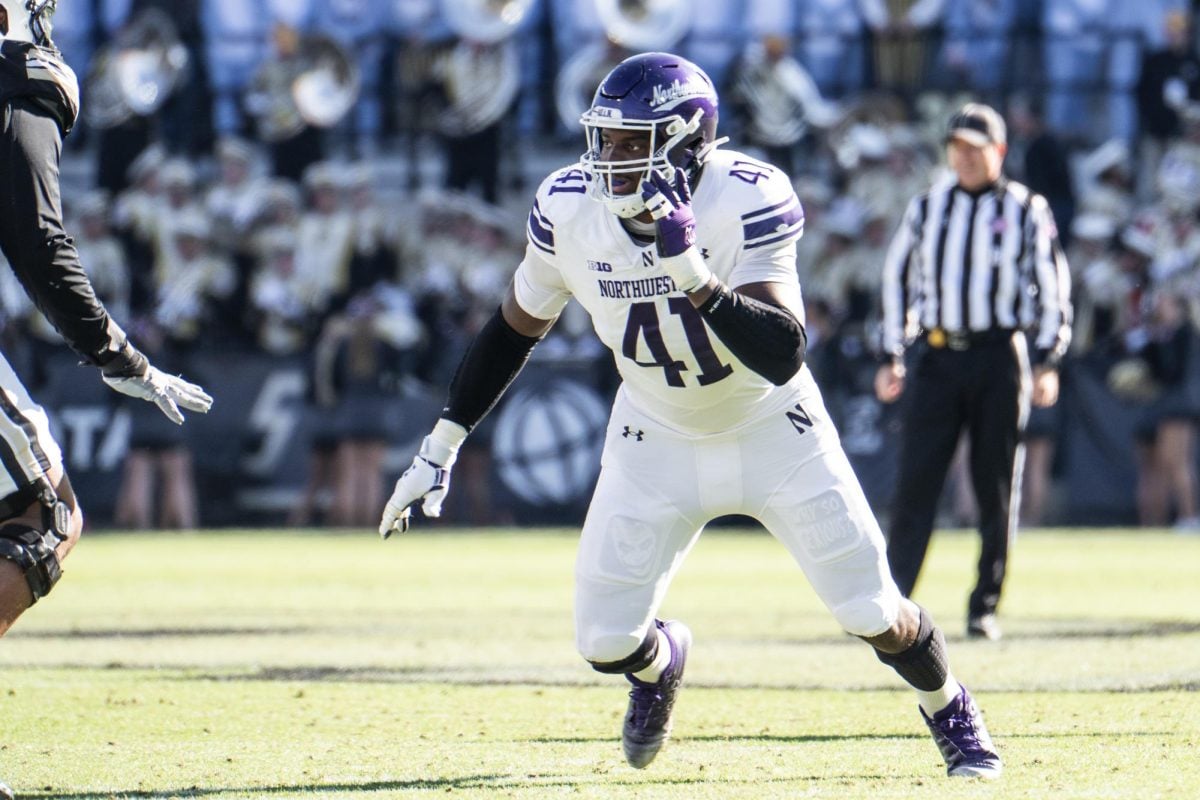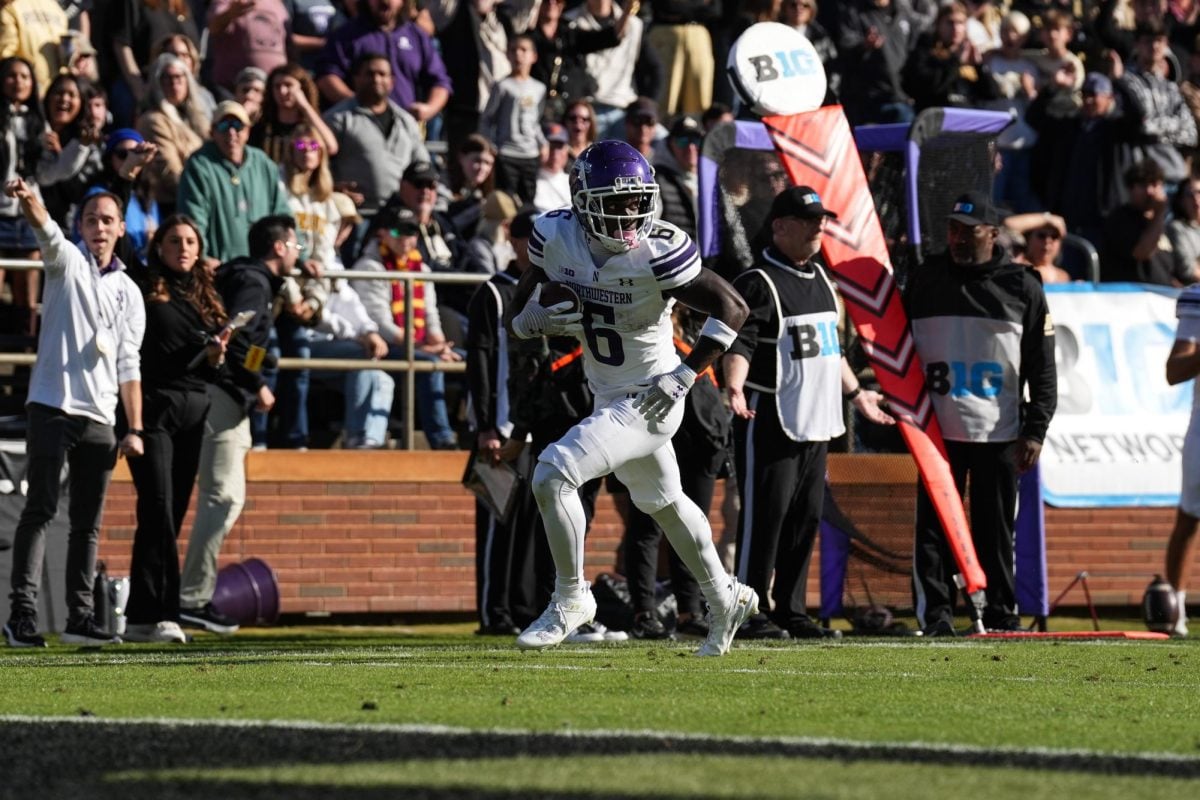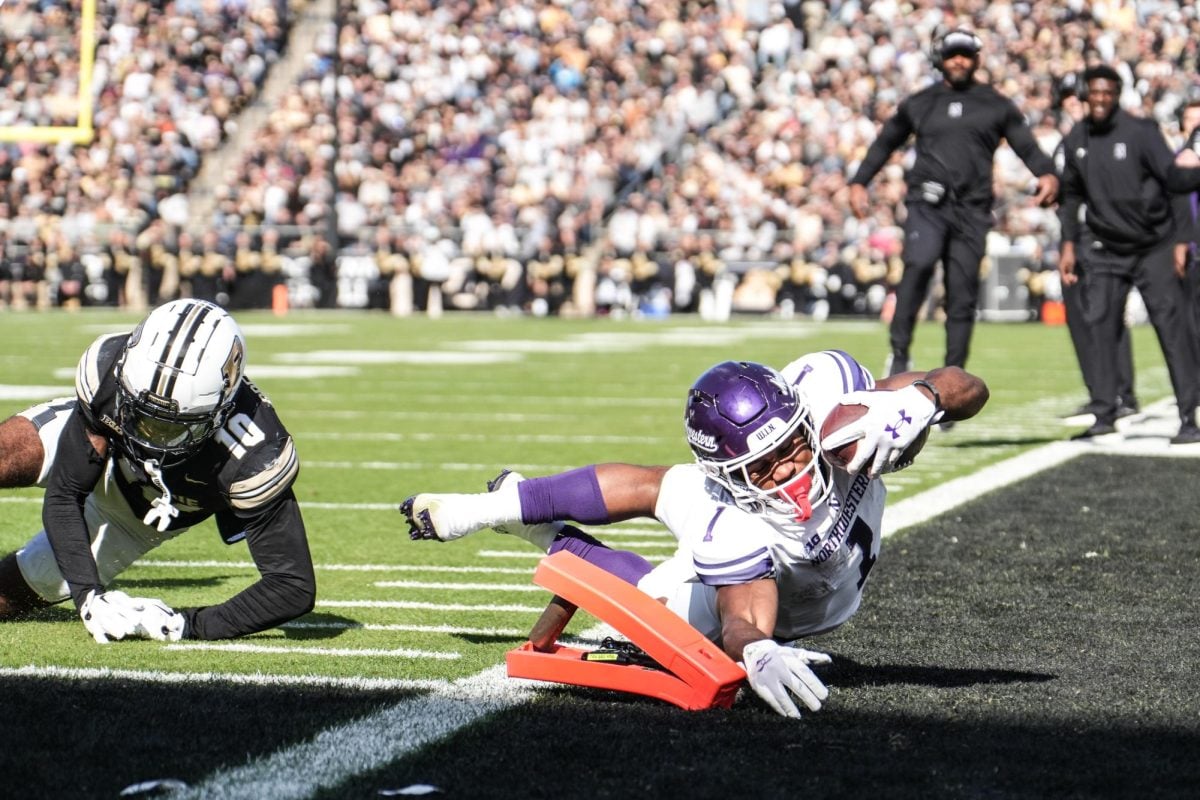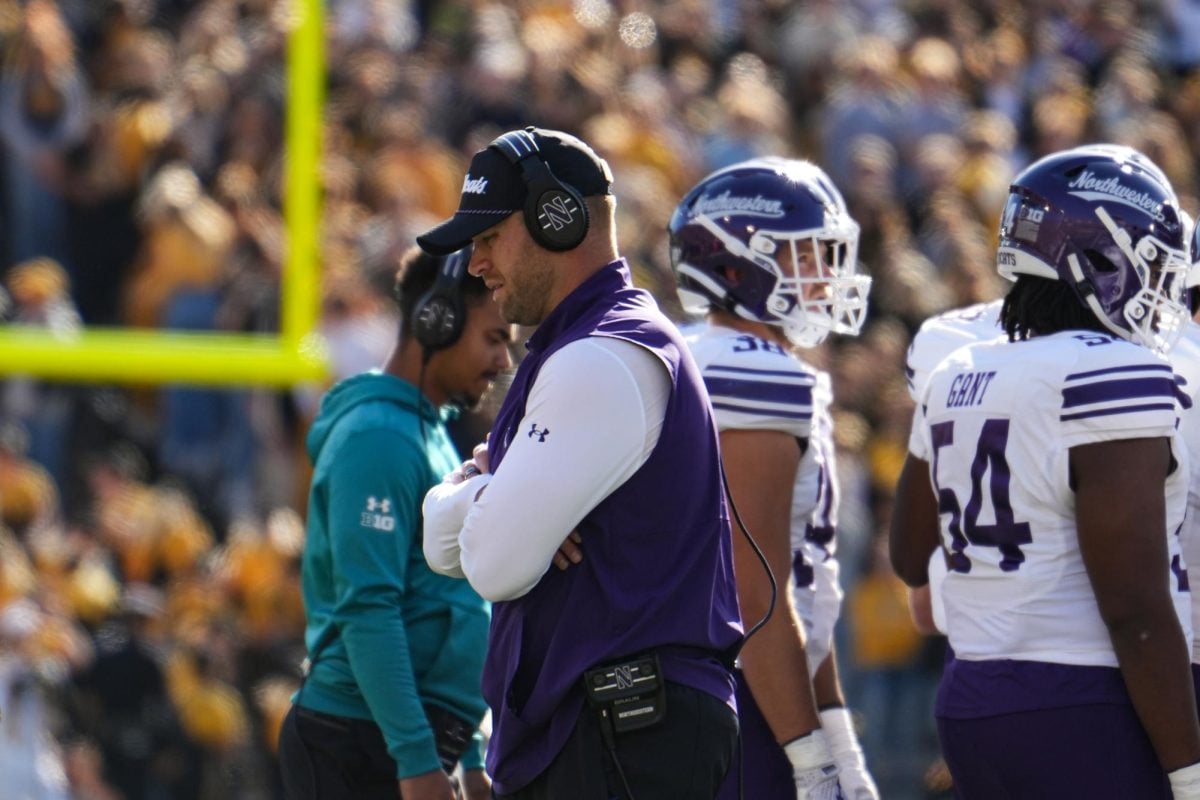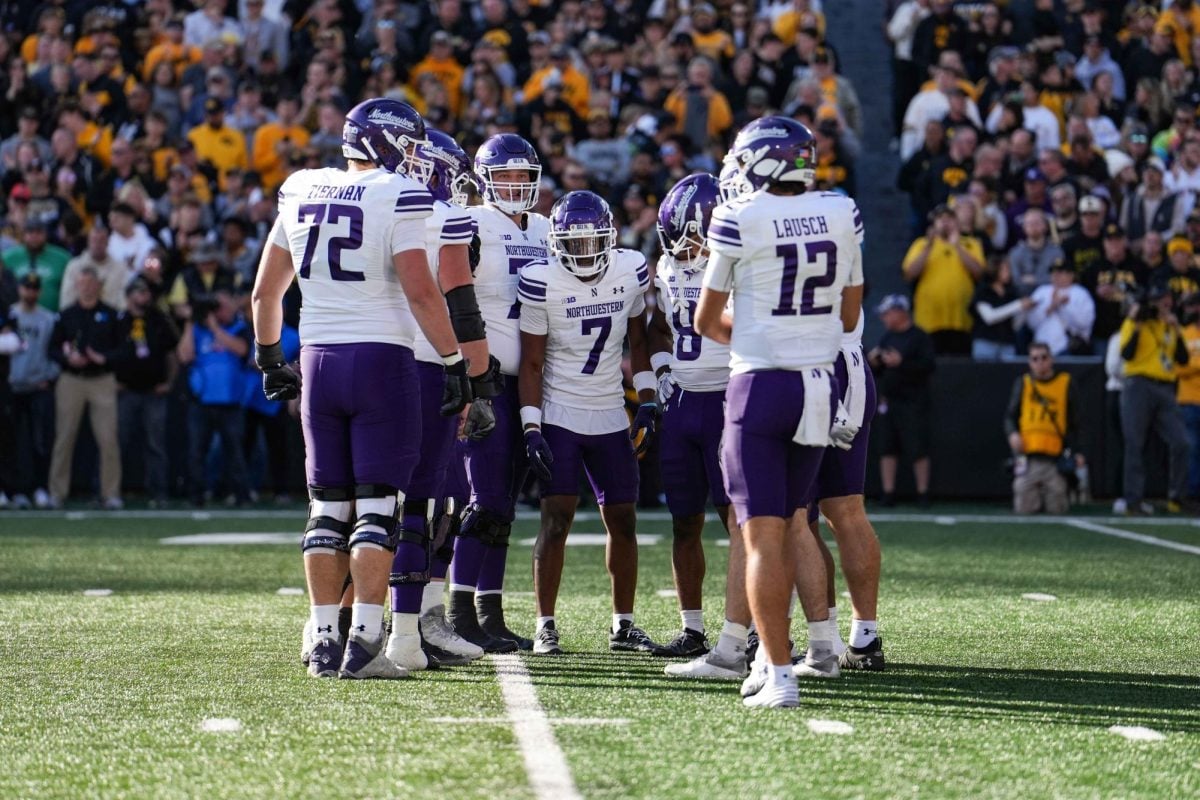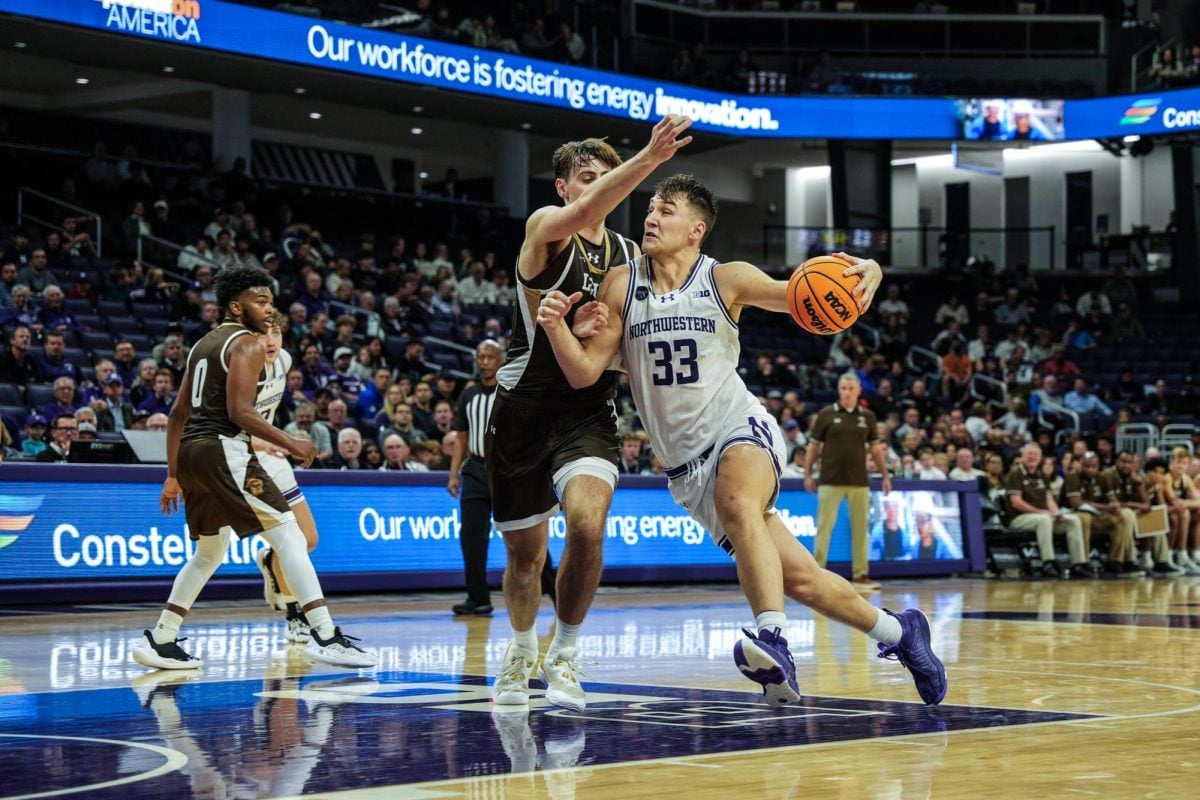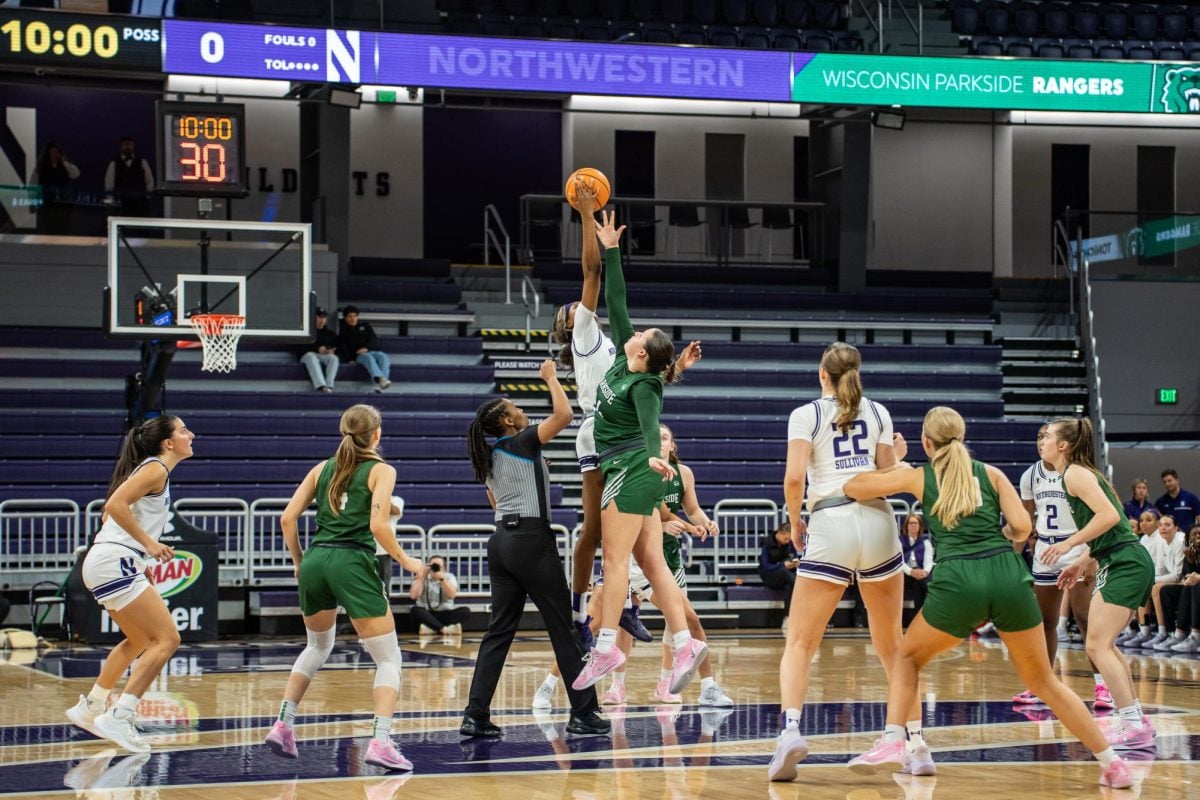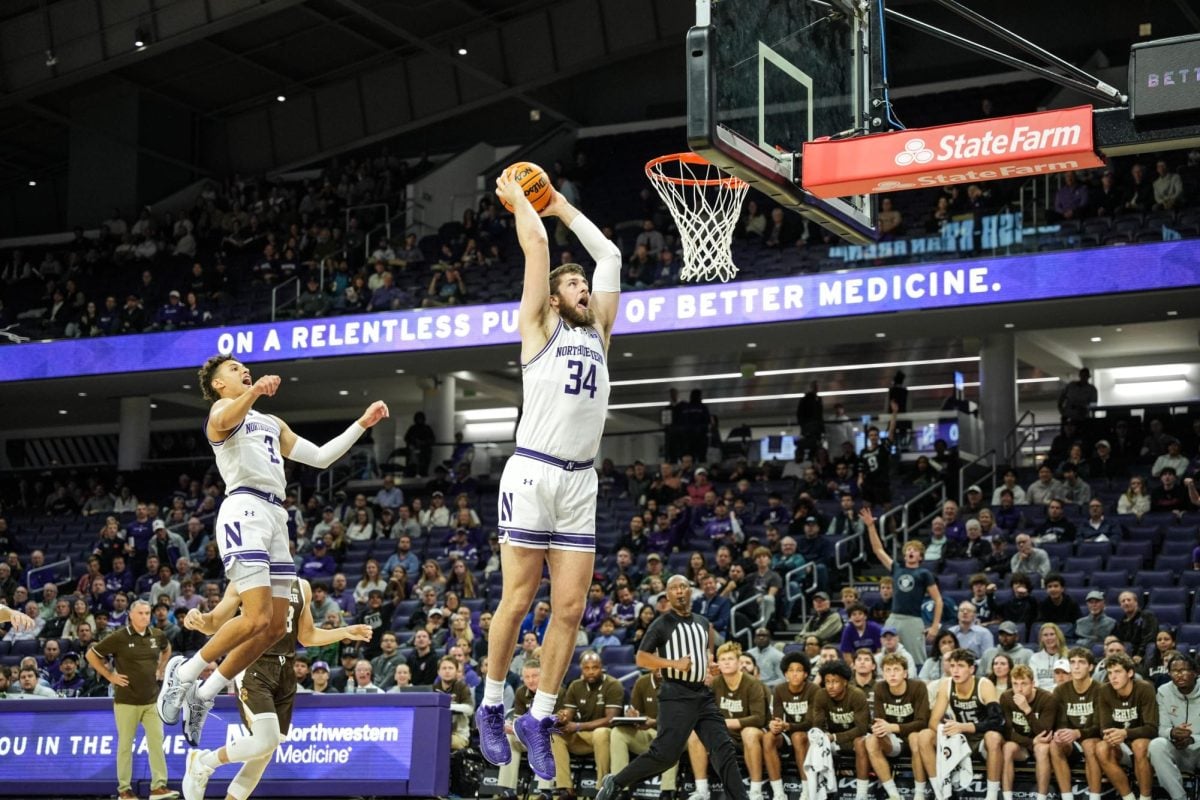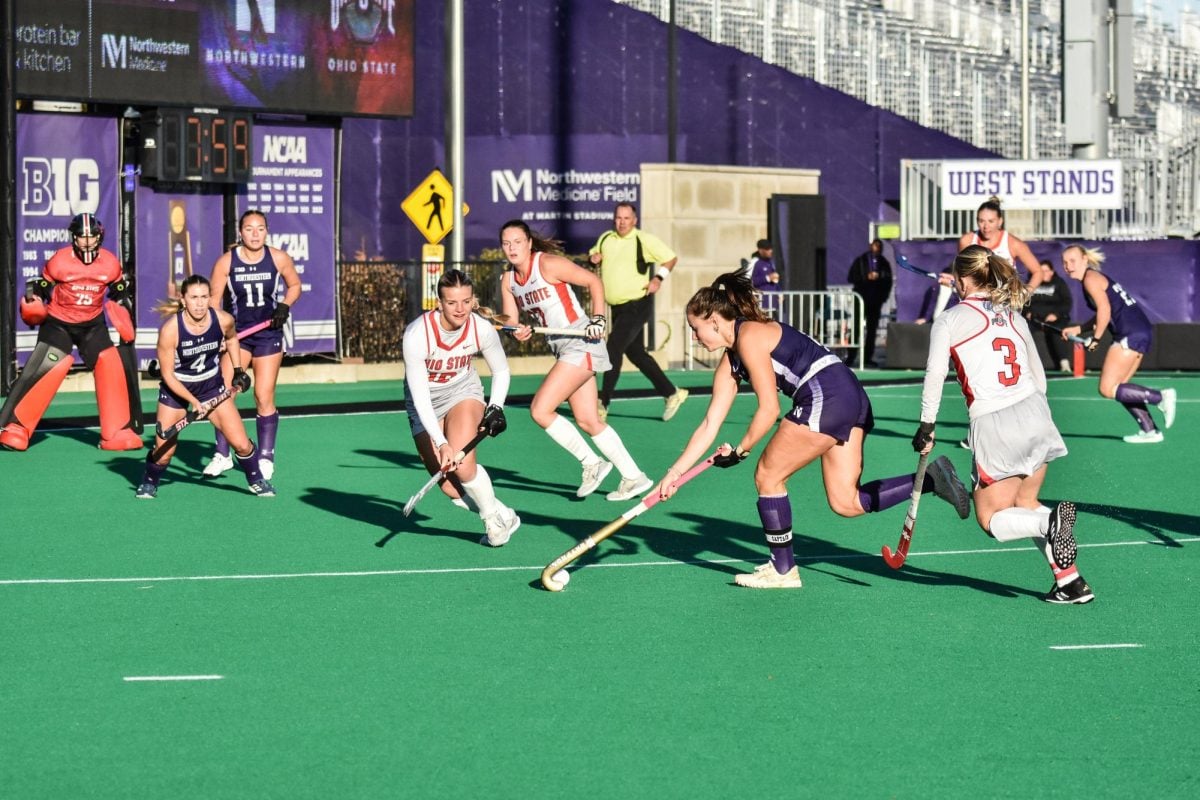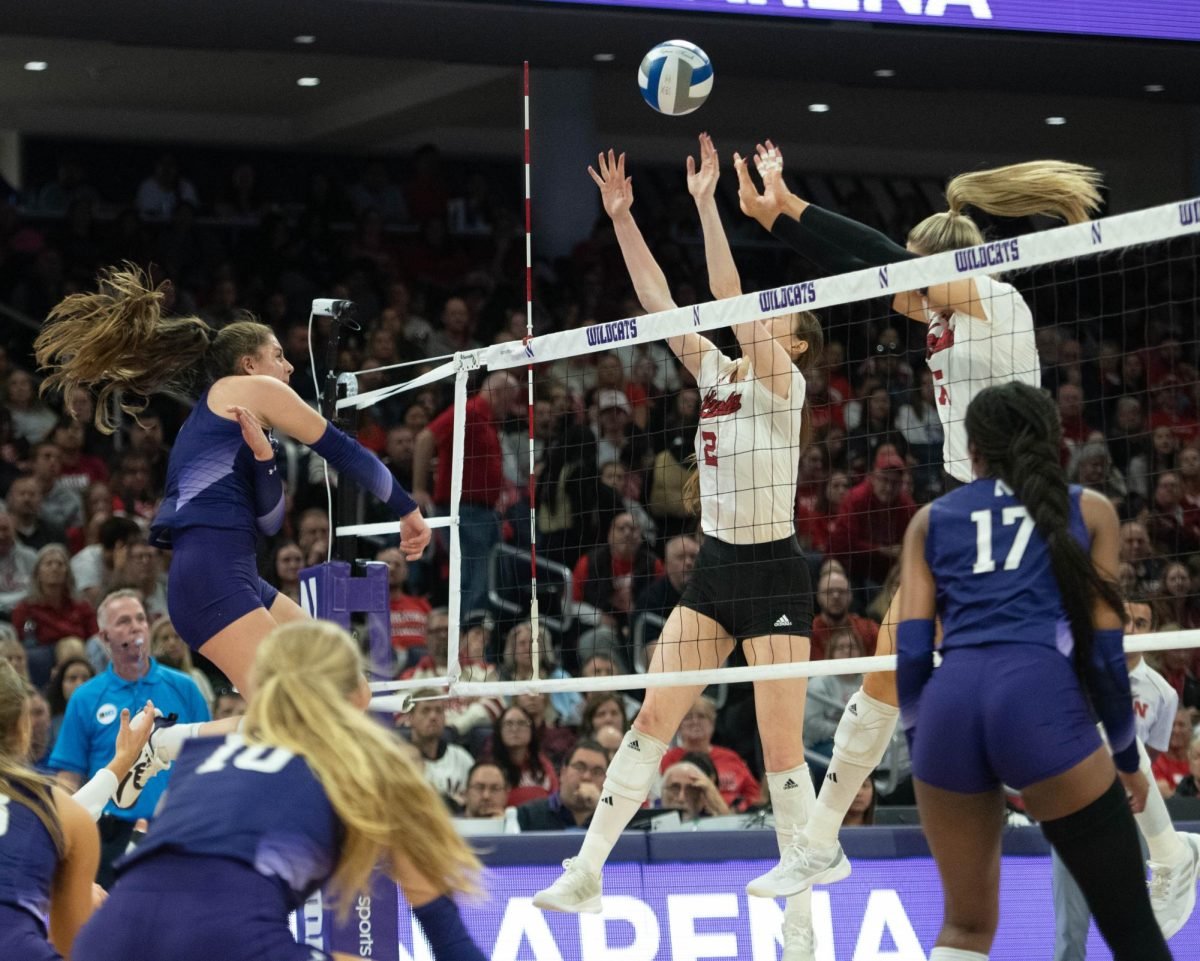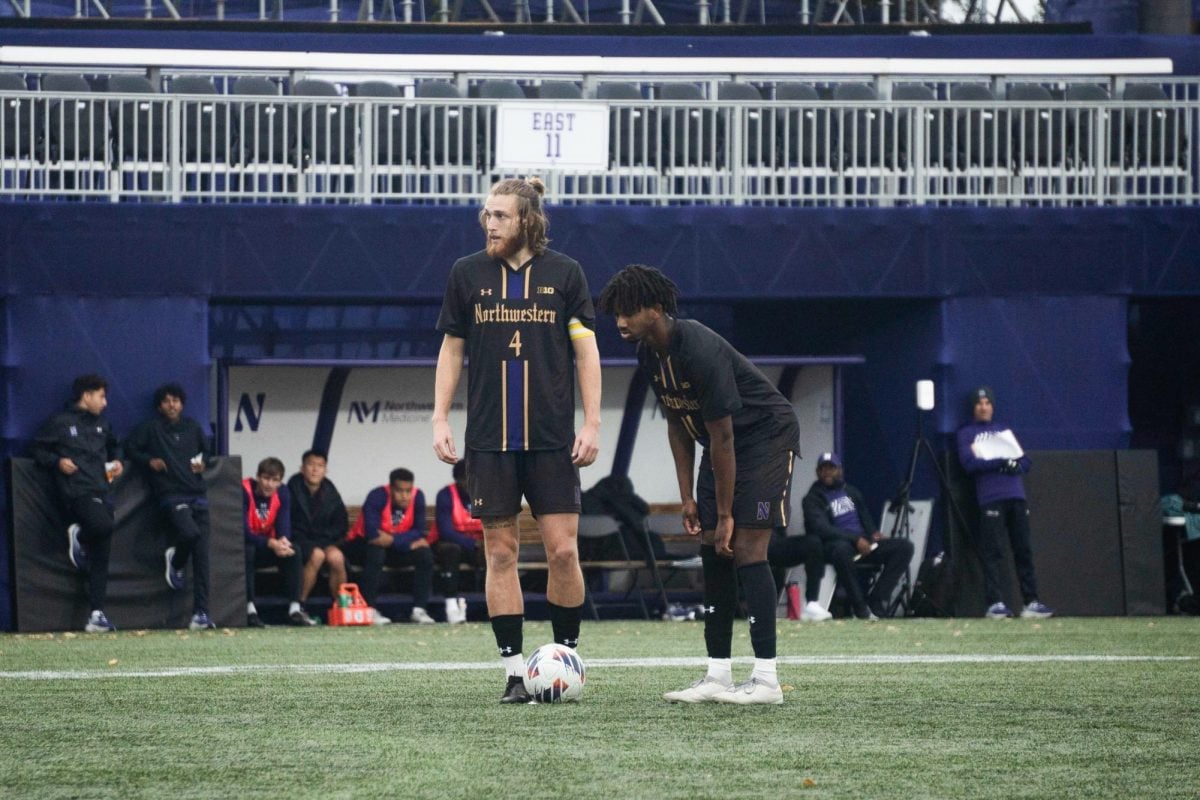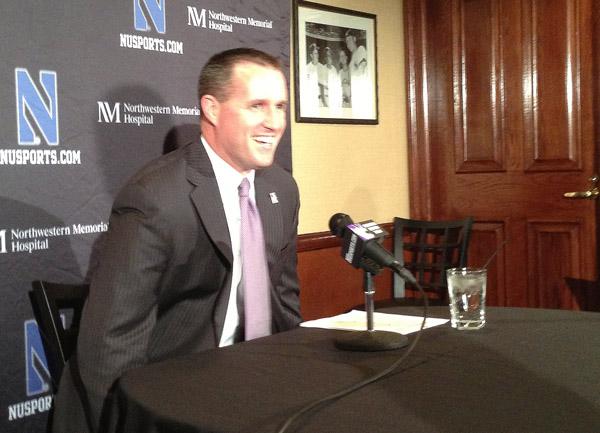
Life as a football coach used to be simple.
But just as college football offenses evolved from three yards and a cloud of dust to spread, pistol, wildcat, air-it-out offenses, college football recruiting has expanded from a simple process to a high-stakes game of national intrigue, with recruiting websites and social media further complicating the process.
At Northwestern’s national signing day news conference in Chicago on Wednesday, head coach Pat Fitzgerald fielded questions on the team’s newest players, but he also spoke for a considerable time about his personal issues with the way recruiting works.
Fitzgerald likened the current situation to a reversed system of dating. In Fitzgerald’s world, schools offer recruits scholarships — marriage proposals — before learning more about each prospect through series of visits and phone calls — or dating.
“We offer scholarships before we’ve ever got to know them,” Fitzgerald said. “It’s socially awkward. It’s really kind of backwards, I’d like to see it flipped over. But we got a lot of things to fix in the NCAA before we fix that.”
Fitzgerald, who pointed out even “email is dead,” previously spoke out against the NCAA allowing assistant coaches unlimited contact with recruits as young as sophomores.
But recent NCAA legislation will allow exactly such contact, allowing assistant coaches unlimited calls, texts and tweets with recruits.
For Fitzgerald, the new legislation is extremely short-sighted.
“As a trustee of the AFCA I’m going to do everything I can to override a lot of these NCAA rules that have been passed,” Fitzgerald said. “Those rules were not made with the student-athlete in mind, with the quality of life of our assistant coaches in mind. High school coaches have zero interest in us having earlier access with their student athletes.”
The NU coach was quick to point out the problems with allowing college coaches to contact football players as young as 15 years old, such as inflating the egos of the recruits or leaving no room for assistant coaches to lead normal lives as increased competition demands they spend more time schmoozing young players.
Fitzgerald joked that the school should “open up a call center” if the new rules remain in play, while also concluding that it would cost programs millions to keep up with one another, creating budget problems for the other 18 varsity sports at NU.
“Sure, I’d love to talk to a 12-year-old,” Fitzgerald said of contacting young recruits. “(But) I’d rather talk to my 4-year-old son.”
The coach recommended that the NCAA revert back to rules that allowed college coaches to only speak to players during their senior year of high school, similar to how the NFL can not have contact with any college players who are juniors or younger.
Even with the new rules, the Wildcats refuse to change their recruiting standards. Any player verbally committed to NU who visits another school will have their scholarship offer taken away. And even with the rising profile of the football program, Fitzgerald insists that athletics will always remain the top priority under his watch.
“It’s going to always start with the way a kid demonstrates a positive attitude,” Fitzgerald said. “Academically, we need to believe that they’re going to come here and be incredibly successful. We’re not looking for kids who are going to barely graduate and stay eligible. That’s not who we are.”
